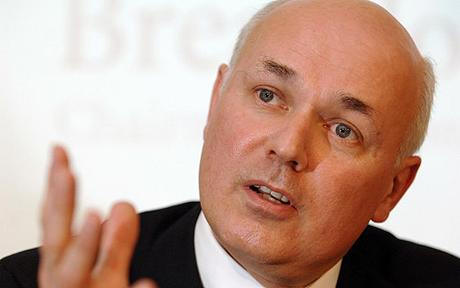
By
John Bingham
Published: 12:01AM GMT 16 Nov 2009

One in three children whose parents separated or divorced over the last 20 years disclosed that they had lost contact permanently with their father.
Almost a tenth of children from broken families said the acrimonious process had left them feeling suicidal while others later sought solace in drink, drugs or crime.
They complained of feeling “isolated” and “used” while parents admitted having used children as “bargaining tools” against each other.
Lawyers said the study showed that the court system itself was making family break-up more acrimonious with children used as "pawns".
They warned that so-called “no fault” divorces were encouraging warring parents to channel their “bloodletting” into disputes over contact.
Opposition politicians said the poll presented an alarming picture of a system “in a mess” which was all too often leaving fathers “shut out”.
The poll of 4,000 parents and children was carried out to provide a snapshot of the workings of the family court system exactly 20 years after the implementation of the landmark 1989 Children Act.
It found that a third of children from broken families had been tempted by drink or drugs while as many as 10 per cent had later become involved in crime.
A quarter of the children said that they had been asked to lie to one parent by the other and 15 per cent said they had even been called on to “spy” for their mother or father.
Meanwhile half of parents polled admitted deliberately drawing out the legal process for maximum benefit and more than two thirds conceded that they had used their children as “bargaining tools”.
About 250,000 couples, both married and non-married, separate every year affecting 350,000 kids, according to the Department for Children Schools and Families.
“The adversarial nature of the system invites people to come and use the courts system as a punch up and the children get used as pawns," said Sandra Davis, head of family law at Mishcon de Reya, for whom the poll was conducted.
“It polarises parents and it puts children in the middle of the antagonism.
“Some fathers back off because it is too painful to carry on litigating, they give up.”
Tim Loughton, the Tory Shadow children’s minister, said: “This is alarming evidence of the very detrimental impact it is having on the welfare of the children themselves.”
“Clearly, the court system is failing and is positively encouraging conflict - and continuing conflict.”
Iain Duncan Smith, the former Conservative leader and founder of the Centre for Social Justice, warned that young people were bearing the scars of a divorce “boom” and a resulting lack of father figures.
“It is a mess, it needs a complete overhaul," he said. "It is an organisation locked in secrecy and deeply unhelpful to the parents and the children and all too often able to exacerbate the problems that they are about to face.”
David Laws, the Liberal Democrat children’s spokesman, added: “In too many cases the children become caught up in the crossfire between two warring parties in a system which sometimes encourages the parents to take entrenched positions.”
Miss Davis called for compulsory mediation for parents hoping to use the divorce courts rather than the current ”tick box” exercise for those seeking legal aid.
But a spokesman for the Children’s Society said that compulsion “goes against everything we have learned from many, many years of experience”.
Delyth Morgan, the children’s minister, added: “Divorce and separation can have a devastating impact on children caught in the middle.
“But this survey, looking as far back as 20 years ago, simply doesn’t reflect what support is available for families now … we have acted to give families comprehensive counselling, practical and legal support.”